Digital Poster
Physics & Engineering Potluck
ISMRM & ISMRT Annual Meeting & Exhibition • 10-15 May 2025 • Honolulu, Hawai'i

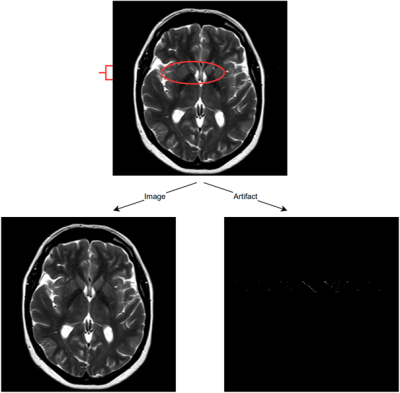 |
Computer Number: 129
4254. Automatic
distinction between external artifact signals and magnetic
resonance signals while searching for independent components
S. Probst, H-P Fautz, J. Pauli, P. Amarteifio, J. Lenger, F.
Knoll
Friedrich-Alexander-Universitaet Erlangen, Erlangen, Germany
Impact: The proposed approach enables low-effort,
continuous image quality assurance as well as automatic
correction of specific artifacts. Moreover, the method
provides insights into potential hardware or interference
issues, thereby helping, to reduce system downtime and
improving patient appointment availability.
|
|
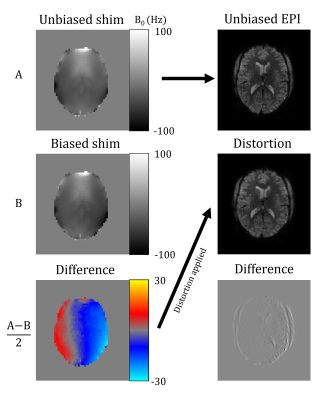 |
Computer Number: 130
4255. B0
field mapping inaccuracies at 7T and their effect on shim
estimation and EPI distortion
C. Lucas, S. Francis, A. Berrington
University of Nottingham, Nottingham, United Kingdom
Impact: Inconsistencies in B0-maps
lead to poor shimming at 7T, increased linewidths in MRS and
distortion artefacts in MRI. This work recommends use of a
2D B0-mapping
protocol along with the acquisition of an ‘unbiased’ B0-map
for image-based shimming.
|
|
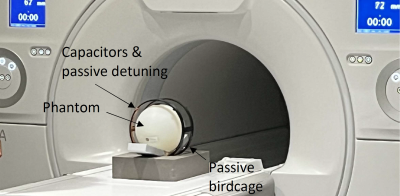 |
Computer Number: 131
4256. Improving
SNR of 3T MRI using an Inductively Coupled Passive Birdcage
V. Zhurbenko, L. Hanson, W. Wang, R. Jepsen
Technical University of Denmark, Kgs. Lyngby, Denmark
Impact: Avoiding connecting cables in RF coil receivers
will positively impact patient comfort and remove the risk
of interference due to common mode currents. The design of
an inductively coupled birdcage is presented, which provides
an SNR improvement in 3T systems.
|
|
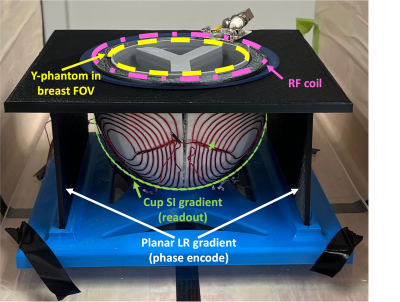 |
Computer Number: 132
4257. Localized
Gradients in an Open Field-Cycling Low-Field MRI: First Images
A. Samardzija, C. Sun, Y. Ha, R. Gross, H. Sun, F. Parra, T.
Nixon, G. Galiana, T. Constable
Yale University, New Haven, United States
Impact: MRI has high breast cancer detection
sensitivity, but due to its high cost, breast MRI is rarely
conducted. By generating images with low-input-current
breast-cup-shaped gradients, we show that affordable
low-field MRI is a viable option for breast cancer
detection.
|
|
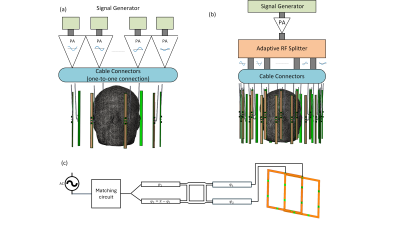 |
Computer Number: 133
4258. Adaptive
RF Splitter for Ideal Current Patterns in Parallel Transmission
and RF Shimming
H. Liang, Y. Yang, M. Lu, X. Yan
Vanderbilt University Medical Center, Nashville, United States
Impact: A method that can directly control the current
on the coil was proposed, even in cases of strong coupling
between coils. This eliminates the need for specific Tx coil
geometry, layout, or structure, and may enable superior pTx
performance.
|
|
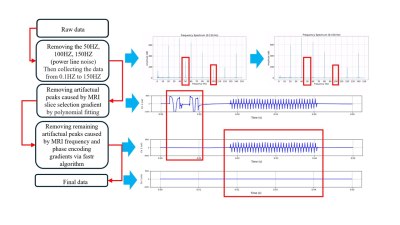 |
Computer Number: 134
4259. Simultaneous
Multi-channel Electroencephalogram (EEG) and resting-state
functional MRI (rsfMRI)
J. Shang, L. Xie, Q. Lyu, J. Wen, Y. Zhang, Z. Zhang, E. X.
Wu, A. T. L. Leong
The University of Hong Kong, Hong Kong SAR, China
Impact: Our simultaneous recording approach successfully
showed the feasibility of acquiring high-quality,
artifact-free multi-channel EEG and fMRI data, establishing
a robust methodological foundation for future integrated
EEG-fMRI experiments.
|
|
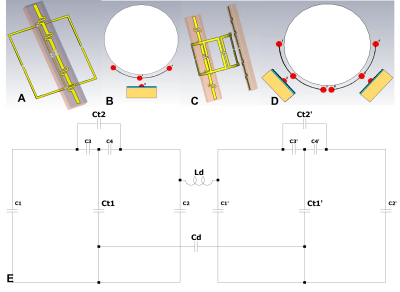 |
Computer Number: 135
4260. Triple-tuned
Dual-channel Butterfly-Dipole Coil for 7T Calf Muscle MRI/MRS
Z. Sun, A. Shinozaki, J. Miller, T. Lanz, D. Tyler, L.
Valkovič
Oxford Centre for Clinical Magnetic Resonance Research, RDM Cardiovascular Medicine, University of Oxford, Oxford, United Kingdom
Impact: This design facilitates comprehensive muscle
assessment using MRI/MRS at ultra-high field strength and
has the potential to expand its applications to other
anatomical areas and nuclei.
|
|
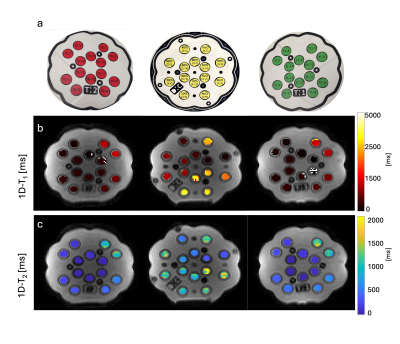 |
Computer Number: 136
4261. Two-Dimensional
T1-T2 Encoded Pulse Sequence Development at 0.064T
E. Wilczynski, N. Williamson, A. Avram, F. Padormo, P.
Basser
Section on Quantitative Imaging and Tissue Sciences (SQITS), National Institute of Child Health and Human Development (NICHD), National Institutes of Health (NIH), Bethesda, United States
Impact:
Little is known about healthy brain development of children in LMICs, where there is limited access to radiology. This project intends to improve our understanding of determinants of brain health and help democratize access to radiological resources worldwide. |
|
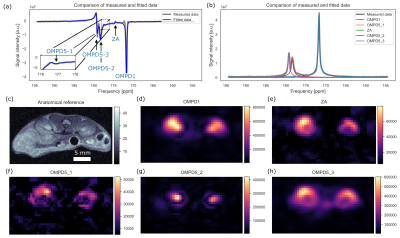 |
Computer Number: 137
4262. Enhanced
preclinical metabolic imaging of hyperpolarized 13C nuclei using
a cryogenically-cooled transmit-receive RF coil
L. Nagel, M. Gierse, S. Knecht, Z. Ahmadova, S. Karaali, M.
Grashei, S. Sühnel, N. Setzer, G. Topping, I. Schwartz, F.
Schilling
TUM School of Medicine and Health, Department of Nuclear Medicine, TUM University Hospital , Munich, Germany
Impact:
Combining hyperpolarized 13C agents with cryogenically cooled RF coils enhances SNR improving the preclinical imaging setup. |
|
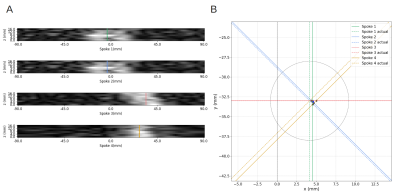 |
Computer Number: 138
4263. Spatio-temporal
encoding for needle tracking on an ultra low-field single-sided
MRI scanner
R. Jin, M. Shokrekhodaei, M. Gomes, M. Viswanath, S. King,
R. Narayanan, M. Sadinski
Promaxo, Oakland, United States
Impact: The method can be further adapted to guide
additional clinical procedures.
|
|
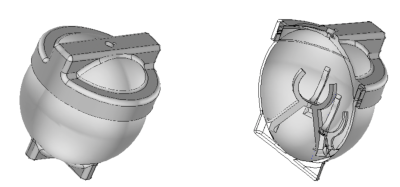 |
Computer Number: 139
4264. Enhanced
Glioma Tumor Diagnostics with 3D printed Quality Assurance
Phantom: GlioGuard
G. Ager-Wick, C. Skramstad, L. Ersland, M. Kristoffersen, R.
A. Haakonsen, A. R. Craig-Craven, J. G. Seland
University of Bergen, Bergen, Norway
Impact: GlioGuard standardizes 2HG detection in MRS,
improving reliability and clinical relevance for glioma
diagnostics. It provides cost-efficient, tumor-relevant
compartments for accurate metabolite quantification,
benefiting facilities without established MRS protocols or
facilities focusing on optimization and quality assurance
(QA).
|
|
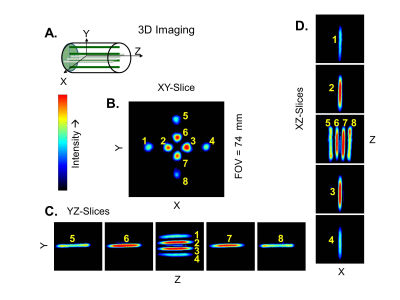 |
Computer Number: 140
4265. A
novel split patch antenna and saddle coil resonant structure for
EPR Imaging
N. Devasahayam, S. Kishimoto, K. Yamamoto, G. Chandramouli,
M. Krishna, S. Subramanian, H. Merkle
NCI, Bethesda, United States
Impact: This resonant structure is implemented for the
first time with sufficient bandwidth and short recovery time
to image signals from a large volume resonator. This design
allows easy scale up for human size objects.
|
|
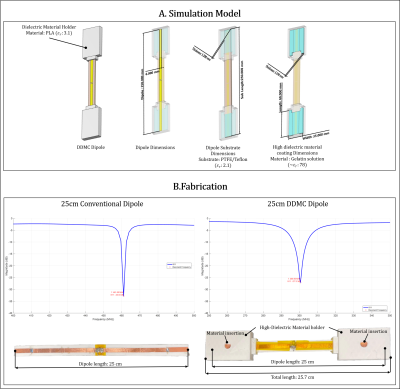 |
Computer Number: 141
4266. Discretely
Dielectric-Material Coated Dipole Antenna: Enhanced Tuning and
Electric Field Reduction for Safety at 300 MHz
A. Bhosale, Y. Zhao, K. Payne, L. Ying, X. Zhang
The State University of New York at Buffalo, Buffalo, United States
Impact: This
research advances ultra-high-field MRI technology by
enhancing imaging quality and safety through innovative
dipole antenna designs. Future studies can explore optimized
dielectric materials, improving access to high-resolution
imaging in clinical settings and benefiting patients with
complex anatomical needs.
|
|
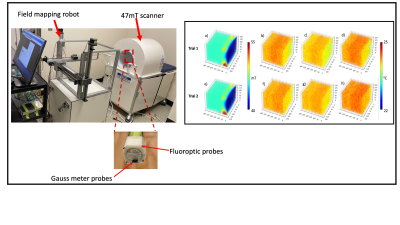 |
Computer Number: 142
4267. Repeatability
of magnetic field homogeneity and temperature stability in a
47mT Halbach array measured by an open-source field mapping
robot
I. E. Oiye, E. Qian, S. Geethanath
Johns Hopkins University, Baltimore, United States
Impact: The homemade mapping robot provides accurate and
simultaneous multi-parameter mapping useful for
characterizing low-field magnets. The repeatability and
stability of the magnetic field strength of the Halbach
scanner indicate consistent scanner operation, which is
essential for portable low-field scanners.
|
|
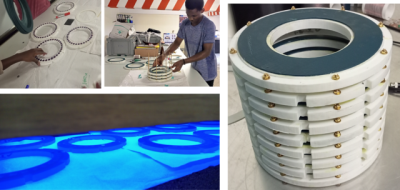 |
Computer Number: 143
4268. Harnessing
Open-Source Tools for Transformative MRI Education in LMICs:
Practical Approach to Low-Field Halbach MRI Construction in
Uganda
R. AMODOI, L. Loprimo, L. Kinyera, P. Tusiime, M. NASSEJJE,
J. Obungoloch, R. Asiimwe
MRI-UGANDA, Mbarara, Uganda
Impact: We leveraged open-source MRI tools & to enhance
understanding of MRI physics and low-field MRI construction
in LMICs. By providing accessible, hands-on training, it
empowers local communities with the skills needed to advance
sustainable MRI solutions in resource-limited settings.
|
The International Society for Magnetic Resonance in Medicine is accredited by the Accreditation Council for Continuing Medical Education to provide continuing medical education for physicians.